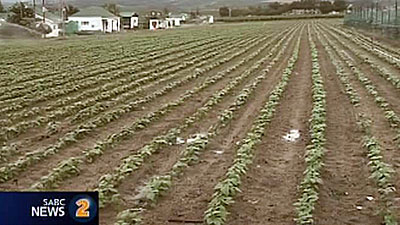Tuesday marks 105 years since the 1913 Natives Land Act was enacted three years after the establishment of the then Union of South Africa.
The Act was repealed after 1994. It prohibited so-called Natives from owning, leasing or acquiring land.
One of the first moves against the Natives Land Act was seen when Sol Plaatjie – founder of what became the ANC – unsuccessfully challenged the British Government to scrap the legislation, a year after it became law.
“Awakening on Friday morning, June 20, 1913, – the South African native found himself, not actually a slave, but a pariah in the land of his birth.” These were the words of Solomon Tshekiso Plaatjie after the 1913 Natives Land Act became law.
According to various publications and information obtained from the Parliamentary Library, the Natives Land Act was signed into law on of June 16, 1913 by the then Governor General Herbert Gladstone.
The implementation of the Act only kicked in on June 19, 1913. Natives were prohibited from entering into land transactions or owning land in the Union of South Africa.
They were not allowed to buy, own or lease land for farming purposes. They were also not allowed to occupy farm land unless they were tenants while they were servants on farms.
The 1913 Natives Land Act Act was amended several times even during the Apartheid era but was ultimately repealed after the dawn of democracy in 1994.
EFF Spokesperson Mbuyiseni Ndlozi says although the 1913 Natives Land Act has been repealed, its legacy is still in full force.
“The Natives Land Act still exists in relation to what it intended to achieve. And to that extend that is why the only think that will rid the 1913 Land Act – and its implications, its legacy which is still with us in full force – is to amend the Constitution and allow a process where we can expropriation land without compensation for its equal redistribution.”




